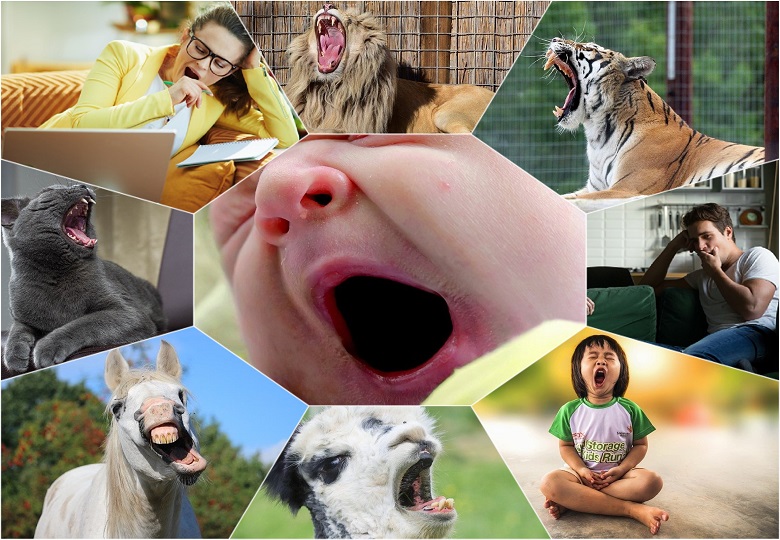Have you ever wondered why we yawn? Throughout life, so many interesting physiological processes take place in the human body, which we, at times, ignore and do not think about their nature. And if you observe yourself and others a little and look at all living organisms’ processes with different eyes, many exciting moments will open.

Take yawning, for example; why does a person yawn? And why is yawning so contagious? It was worth a little thought, and there were so many questions at once. Let’s try to figure it out a bit by looking at this process from different perspectives—everyone yawns – people, mammals, birds, reptiles, and even fish.
Scientifically speaking, yawning is an involuntary breathing movement consisting of deep, slow inhalation and rapid exhalation. A deep, slow breath actively saturates the blood with oxygen, and the tension of the muscles involved in the yawning process increases blood flow in the brain’s vessels. Scientists themselves have recently refuted the long-held belief that we yawn solely due to lack of oxygen.
Why do we yawn
We yawn not only when we are sleepy or tired but also when we want to relax or even, on the contrary, to cheer up. Scientists from New York concluded that a person begins to yawn in the same way when the body needs to mobilize its strength and energy.
For example, in the morning, even after a sound ten-hour sleep, we will still yawn. Or such an example is obvious with students of educational institutions. We all were, and, probably, each of us had such moments when we fell asleep under the teacher’s quiet, measured voice, and only a noble yawn prevented this.
Yawning, we cheered up our bodies, ready to fall asleep. There are cases when a person begins to yawn strongly with nervous excitement, and here yawning also rushes to our aid – taking a deep breath, thereby, relieves stress, fatigue. It turns out that yawning is highly beneficial.
Is yawning contagious?
In addition to its usefulness, yawning has another exciting feature, which still has no clear explanation. I think you guessed it. Yes, yes – this is “contagiousness”. Why is this happening? Why, being in the same room, is it worth only one person to yawn, as everyone picks up this “baton”?
Scientifically, yawning’s contagiousness explains as its imitative action in the form of a mirror-neural response.
When a person sees another person yawning, a complex brain zone system is activated, which is responsible for movement, imitation, empathy, and social behavior.
Recent studies have suggested that yawning’s contagiousness base on compassion and emotional connection between people. This research is base on the science of empathy – that is, people’s ability to imagine what other people are thinking or feeling.
By the way, according to the results of the research, it turned out that of all vertebrates, only chimpanzees, and several other species of monkeys, can have the ability to imitate someone else’s yawns. Yawn to your health!
